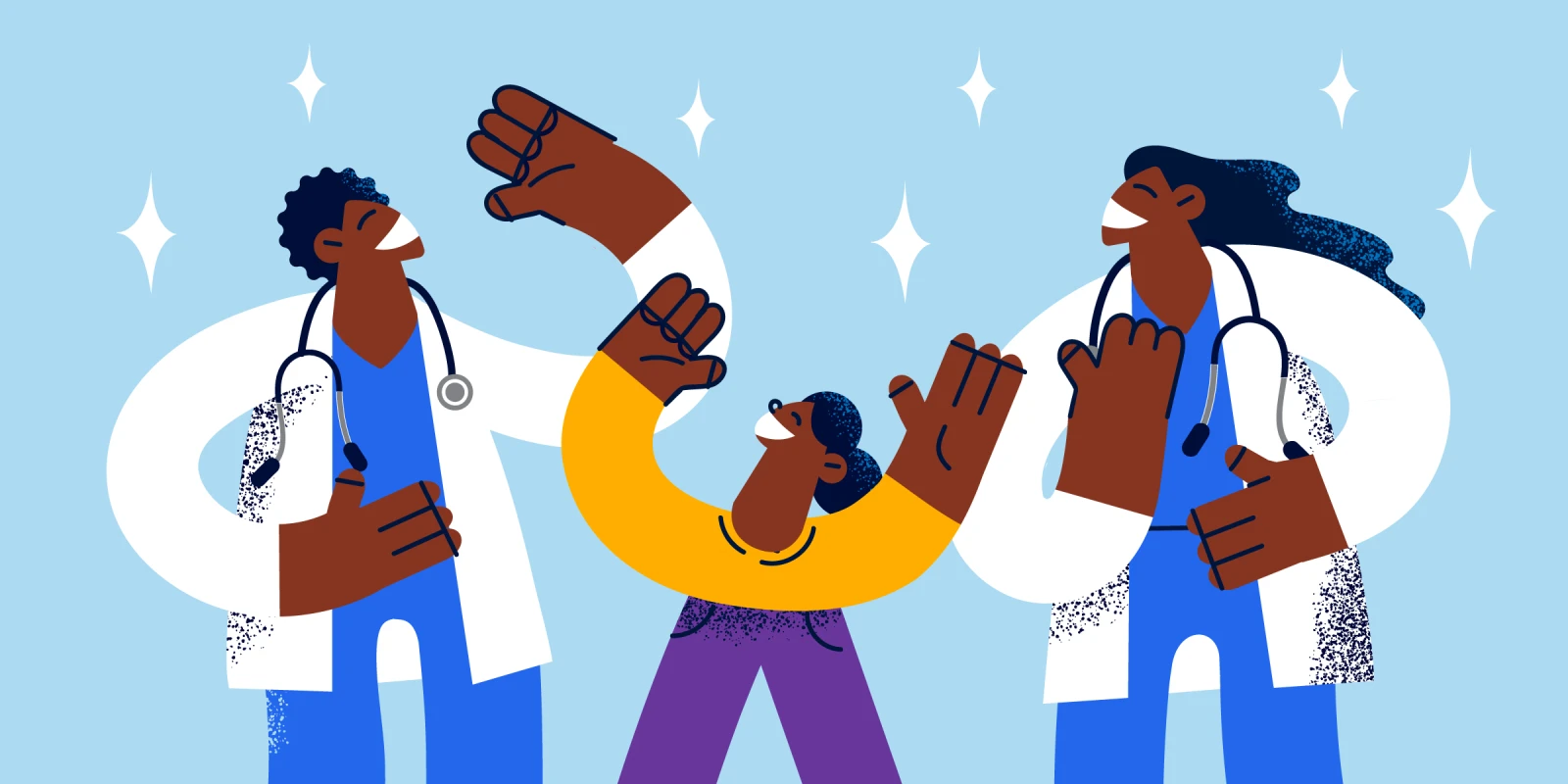Both of my parents are physicians: My father is a physiatrist and my mother is a rheumatologist. Growing up, I quickly became familiar with the medical jargon that my parents tossed around at the dinner table as they discussed their difficult cases. They might say, for example, “And so my question is, Does this 46-year-old female with chronic pain, who can clearly carry out activities of daily living, require long-term disability?” I would sit staring at my plate of spaghetti and ponder the question, too, and wonder, at 8 years old, did she require disability? I would move the meatballs around with my fork while also wondering what “disability” meant.
My parents were an interesting pair, at least in the context of their different approaches to the occasional injuries and illnesses my siblings and I sustained. I remember accidently sliding across the pavement and scraping most of my arms and legs while playing tag in the Lincoln Center courtyard during a family vacation to New York City. At 11, this was arguably the most pain I'd ever felt. My mother immediately ran to the closest Duane Reade, stocking up on butterfly bandages, antibiotic ointment, hydrogen peroxide, and gauze. My father, on the other hand, gave me a big hug and essentially said, “Walk it off.” This is not precisely true, but I do remember my mother tending to my bruises after we returned to the hotel room, while my father watched “Elf” on TV, gave me a Snickers bar, and jokingly rubbed my head, asking, “Does that make it any better?” over and over again. He would have kept this bit going for at least another 10 minutes had he not found the joke so funny that he couldn't stop laughing.
My mother's full-blown approach to my care was probably, in large part, due to her maternal and nurturing ways, whereas my father, nurturing in his own respects, was likely functioning from the position of a physician who had seen many cases of traumatic brain injury. This is what they teach us in medical school: What do you not want to miss? If a middle-aged patient has shortness of breath, maybe heart failure or pulmonary embolism. But with an 11-year-old girl who presents with arm pain and can sit up in bed eating chocolate while watching “Elf,” the can't-miss diagnoses can be moved to the bottom of the list, if not thrown out entirely.
Over the years, I began to realize how reassuring it was that my parents were doctors. My parents were well respected in our community and were the go-to people for any medical-related questions, reinforcing the idea that they could handle anything that pertained to our health. Despite hardly knowing us, some people, including sports coaches and new neighbors, would ask shamelessly candid questions: “Hey, you know, my ankle's been bothering me these last couple weeks. You think it's gout?” Or, “I went to a dermatologist the other day but I wanted to double check with you — do you see this mole on my back?” I found their curbside medical advice quite amusing, no matter the situation. Even at a memorial service, I wouldn't be surprised to hear a whisper in the back, “Hey, quick question: Do you think I need to get another colonoscopy next year or not?” And so having doctor parents was something I grew to be quite proud of, given the respect and reassurance it built.
Whereas my two siblings chose other paths, I chose to pursue medicine. Unsurprisingly, my path to becoming a doctor has been influenced and made easier by having two physician parents.
Indeed, I not only had firsthand exposure to the niche fields of rheumatology and physiatry, but I also had the privileges that came with two highly educated, well-compensated professionals as my parents. And these privileges extended beyond unique shadowing opportunities in the hospital — they included excellent tutoring for my college entrance exam at an hourly rate that exceeded the cost of a five-star masseuse; extra input on an internal medicine differential to include the rare autoimmune diseases; fully paid-for housing for a summer internship after a quick mother-daughter chat on how to download Venmo; and decreased feelings of impostor syndrome, compared with peers who had non-doctor parents. In other words, my parents have consistently supported me financially and academically in my pursuit of a medical degree, which has made the path to becoming a physician — one wrought with exhaustive expenses and mental hurdles — less daunting, more affordable, and simply put, easier.
The journey to becoming a physician should probably not be as financially and mentally challenging as it notoriously is. Excessive costs and stressors significantly weigh down those in training, and likely deter many prospective students from pursuing a career in medicine.
So, I am grateful for the unique childhood I had, learning about disability cases over dinner and listening to rheumatology lectures around campfires. But without the financial, academic, and emotional support of my two doctor parents, I cannot confidently say I would be a third-year medical student today.
Have you had early experiences that drew you to a career in medicine? Share your thoughts in the comment section.
Sarah Marion is a third-year medical student at UVA School of Medicine and is interested in medical storytelling. She studied narrative medicine at Brown and has since been part of several projects relating to cancer narratives, survivorship, and grief poetry.
Image by Denis Novikov / Getty





